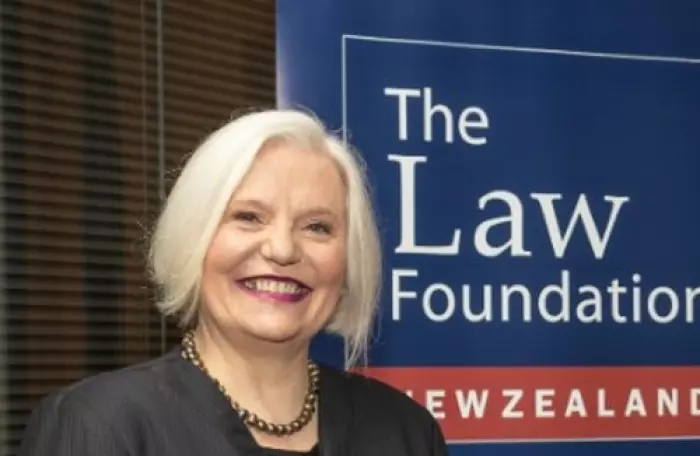A leading charities' lawyer is urging the government to press pause on its review of the Charities Act and go back to the drawing board.
With a bill expected to be introduced this year to amend the act, the suggestion is likely to fall on deaf ears, but lawyer Sue Barker is adamant the government should reconsider what she views as a flawed process.
“These issues are complex,” she said. “They’re far-reaching and it goes to the heart of the type of society we want to live in.
“It’s so important, in my view, to do this properly.”
The Charities Act is the legal framework setting out the registration process for charities in New Zealand and their legal obligations, including annual reporting.
When it was passed in 2005, Barker said the government assured the community and voluntary sector there would be a post-implementation review.
In its 2017 election manifesto, Labour promised a first principles review of the act, including examining, updating and widening the definition of charitable purposes, as well as consulting with the sector about the disestablishment of the Charities Commission, an independent body whose functions were transferred to the Department of Internal Affairs (DIA) in 2012.
The government announced a comprehensive review of the act in 2018, however, Barker said the scope of the review – outlined in the terms of reference – doesn’t live up to the manifesto commitments.
The terms of reference explicitly rule out reviewing the definition of charitable purposes, tax exemptions, regulation of the broader not-for-profit sector and contracting arrangements with the government.
Five broad areas are listed in scope, including matters related to registration and deregistration and the obligations of registered charities.
While appeals and regulatory matters are included, the DIA website says the issue of advocacy – the extent to which registered charities can advocate for their charitable purposes – won’t be considered.
Barker thinks the limited scope is a mistake.
“If they’re only going to do these five telescoped issues which don’t address issues of concern for the charitable sector and basically increase regulatory control it will be a colossal mistake,” she said.
Accountability, not regulation
Barker, a member of the core reference group set up by DIA as part of the review, recently completed a mammoth project funded by a Law Foundation fellowship looking at what a world-leading charities law framework would look like.
Among its dozens of suggestions, the report recommended the government transfer its review of the Charities Act to an independent body like the Law Commission to undertake a thorough, first principles review.
Other recommendations included reviewing the statutory definition of charitable purpose with a view to expanding the range of purposes considered charitable, clarifying in law that charities can advocate in furtherance of their charitable purposes and that the entity administering the law be an independent crown entity.
“It’s critical,” Barker said.
“Because you cannot protect the independence of charities if a government agency gets to determine which charities do and do not get on the register.”
Under the existing legal framework, an independent three-person board, Te Rātā Atawhai, is responsible for registering and deregistering charities. The board does make decisions in novel or contentious cases, but in practice, most registration decisions are made by Charities Services, a business unit within DIA.
While Charities Services self-describes as a regulator, Barker said this was contentious and they should be referred to instead as a registrar.
She believed charities were too often viewed through a tax expenditure framework, focussing on the supposed cost of their tax-exempt status, without taking into account all the benefits they provided to society.
“If we don’t look at the wider benefit, charities risk being perceived and regulated as if they’re a tax loophole, and that’s exactly what it’s come down to,” she said.
“There are a lot of myths and misconceptions out there and I would really like to change the narrative about charities.”
Instead of focussing on regulation, Barker emphasised the benefits of providing a framework that enabled and supported charities in recognition of the benefits they provided, although she firmly supported the requirement for financial reporting as an accountability measure.
“Once we’ve accepted a charity’s purpose as charitable, as private organisations they should be free from inappropriate government interference,” she said.
“We should let them get on with furthering those purposes, subject to their rules, subject to the general law, and subject to the requirement for comprehensive disclosure.”
DIA would disagree with the current regime being onerous.
'A very bad mistake'
Charities Services has never imposed administrative penalties on charities for filing late, according to an analysis by BusinessDesk. And just four charities in the past five years have been deregistered for serious wrongdoing.
According to its head of regulatory, Stephen Reilly, Charities Services favours an educative approach over enforcement.
“I think the fundamentals of what we’ve got there are pretty much right: registration, monitoring and compliance with support systems,” he said.
BusinessDesk asked Barker what would happen if the government moved ahead with changes to the Charities Act that resulted in increased regulation and compliance.
“There is a very strong feeling that the current framework is not working and that the current review will not address the issues of concern,” she said
"And if you want to go into an election having the charitable sector up in arms about very unhelpful legislation, I think that would be a very bad mistake.”
In her report, Barker also recommended that there be no further piecemeal changes made to the Charities Act, as these could lead to unintended consequences which would be difficult to remedy once they became law.
“Let’s do it once and let’s do it properly,” she said.
Community and voluntary sector minister Priyanca Radhakrishnan previously said she intended to introduce a bill as part of work to modernise the Charities Act this year (BusinessDesk revealed potential changes last week that were referred to in budget documents).















